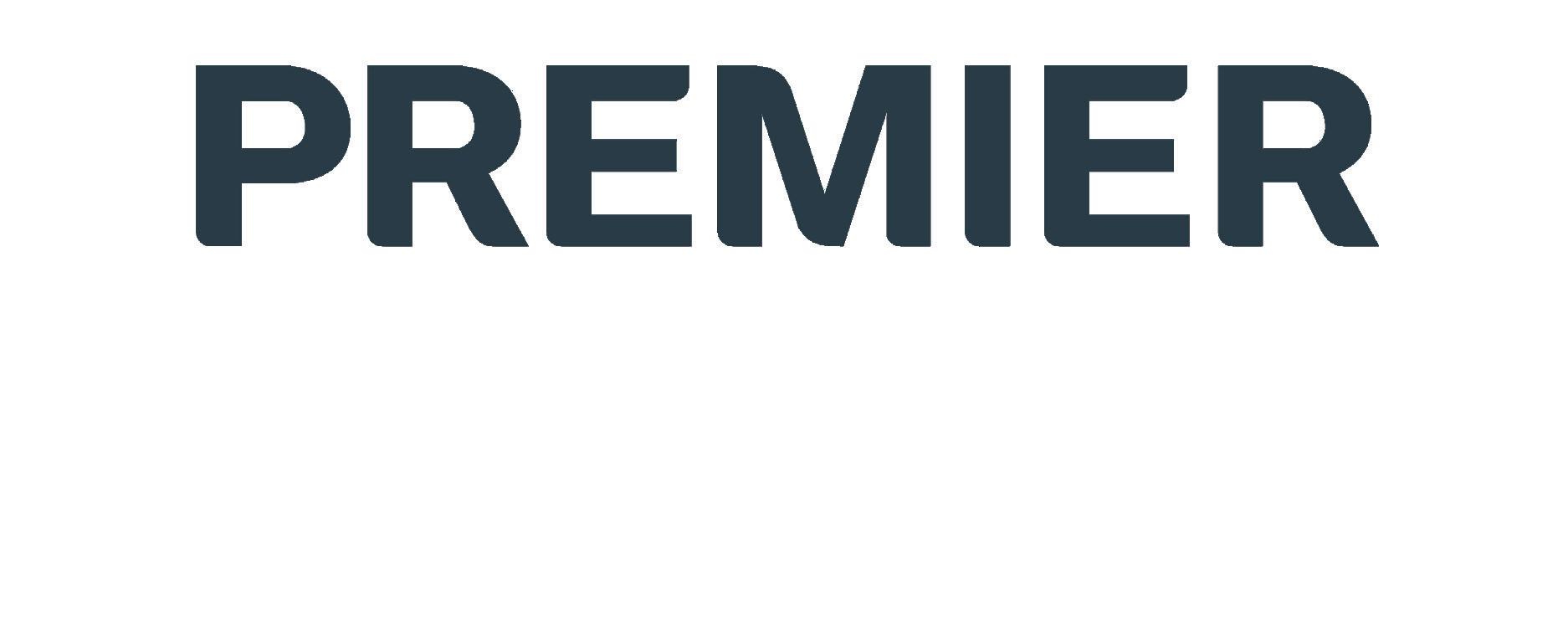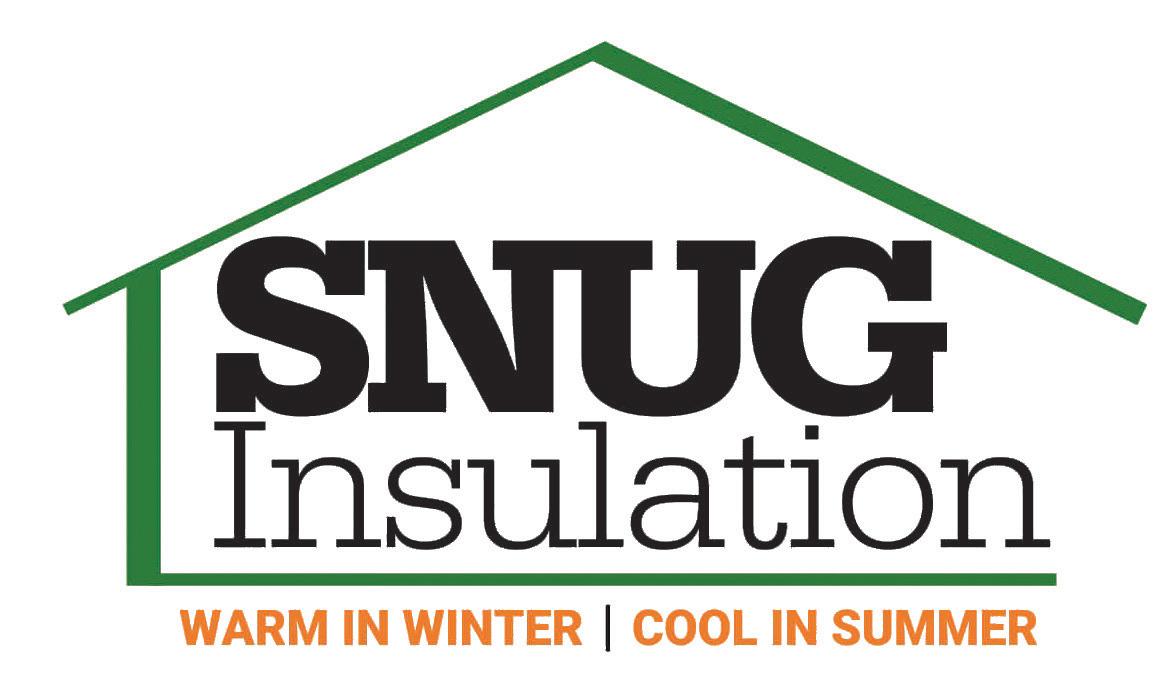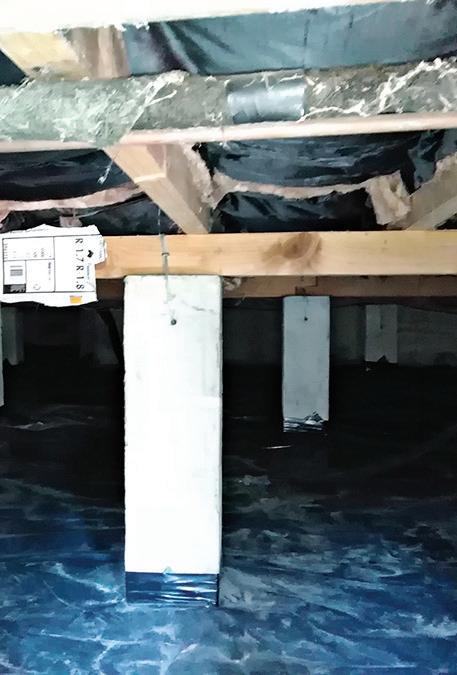
8 minute read
Insulation is the key to better health outcomes
Insulation the key to better health outcomes
Often times, homeowners seek short-term solutions to fix a cold, damp house – running heat pumps, dehumidifiers and similar devices – when the best solution is the one that addresses the fundamental problem of heat escaping.
Having a well-insulated home keeps you and your family healthier, as well as saves you money every year.
The World Health Organisation recommends temperatures between 18 °C and 22 °C, and this is especially important for vulnerable groups such as children and the elderly.
A Statistics New Zealand Report on Energy and Hardship showed that up to a third of New Zealand households struggled with their power bills or spent a large part of their income on power.
This ends up costing more in the long run due to incurred health-related costs. A recent MOTU report demonstrates that the return on investment from putting good quality insulation in a home is five dollars for every one dollar invested.
The Warm Up New Zealand: Heat Smart programme found that retrofitting homes with insulation produced several healthrelated savings and benefits of up to $860 per year per household, including: • Reductions in GP visits • Reductions in time off work and school • Reduced household level hospitalisation costs • Pharmaceutical use costs • Reduced mortality risk for the elderly.
The study also estimates at least a third of private dwellings may be under-insulated, and it suggests that if all homes were properly insulated, New Zealand might gain ongoing health-related benefits of approximately $0.5 billion per year.
Not only that, but it shows that retrofitting insulation and installing effective home heating decreased wheezing in children with asthma and reduced number of sick days off school. Current insulation regulations for rental homes
It’s been compulsory for all rental homes to have ceiling and underfloor insulation since the 1st of July 2019.
All rental homes also must be fully compliant with the Healthy Homes Standard by 2024.
All rental properties covered by the Residential Tenancies Act need to meet the new regulations, and insulation must meet the correct standards and be installed safely. Wall insulation isn’t mandatory.
Landlords beware: if you don’t have the correct insulation installed, you can be in for a big fine. You may be liable for exemplary damages of up to $4,000.
Checking with a professional is crucial to see if you’re in compliance, an exception or are in breach of the Residential Tenancies Act.
Building for climate change
Probably one of the biggest impacts insulation can have is around New Zealand’s carbon zero targets and effecting positive climate change.
The Insulation Association of New Zealand fully supports the recent report released by the Building for Climate Change Commission and is encouraging the NZ Government to go further as we need to deal with all the existing housing stock.
Engaging in a Government subsidies deep renovation programme has the potential to be the single biggest change towards achieving our climate change goals – which could be brought forward to 2030.
Experts in insulation
Making sure you have a professional that’s qualified and competent to do the insulation work you need is the minimum you should expect out of an installer.
Basic questions for your insulation installer:
• Are you a member of IAONZ? • What training has the installer completed? • How many projects have you completed?
When you have a retrofitter or industry professional that’s a member of the Insulation Association of New Zealand (IAONZ), you can have peace of mind that the job will be done the right way that will The study also estimates at least a third of private dwellings may be under-insulated, and it suggests that if all homes were properly insulated, New Zealand might gain ongoing health-related benefits of approximately $0.5 billion per year.
insulate your home for years to come. IAONZ was founded in 2009 to provide industry professionals an advocate for quality installation, training and product, specifically established for the Warm Up New Zealand: Heat Smart retrofit programme.
IAONZ works with the Government and the industry toward an agreed standard of quality; it’s proud to offer training courses that are in accordance with the most up-todate Standards in the NZ Building Code and the AS/NZ Standards for installing insulation.
Retrofitting insulation in your property pays dividends in the long run, also reducing health costs, energy savings and risks for children and the elderly.
Having a trained expert with industry experience and qualifications, as well as upto-date knowledge of current legislation and code, ensures that your investment into your health and home is the highest quality.
Insulation Association of New Zealand (IAONZ)
PO Box 45-098 Lower Hutt Wellington (027) 288 3770
membership@iaonz.co.nz www.iaonz.co.nz
About IAONZ:
• Works with Government and industry toward agreed standards • Offers different levels of membership depending on level of experience, training and work previously completed • Provides uptake and technical information to MBIE and EECA from its members • Has trained over 2,000 insulation experts through its training courses • Represents over 90 percent of the industry.
Questions to ask before starting work at a new site:
• Has the property I am working on had any changes made to the roof over time? • Was the property re-roofed, partially damaged etc? • If so, what was the roof product replaced?
If you don’t know what the roofing product is – especially if residue has been left on the insulation being replaced – get it tested before starting work.
The two main areas of concern are:
1.Some blow-in types of insulation used in NZ in the past have contained asbestos. 2.Asbestos contamination from roofing such as super six and super eight sheeting.
If there is any unknown blow-in type of insulation, it should be tested. If there is any uncertainty around the product, it should also be tested.
IAONZ is aware of a blow-in product imported from Australia containing amosite asbestos – asbestos has also been found in old vermiculite blown insulation.
Asbestos was contained in a lot of roofing material, as well as some exterior cladding material. Installers should never work in a ceiling with super six or super eight roofing. It’s shaped like corrugated iron, but it’s thicker and made fibrolite.
The safety of you and your workers is absolutely vital. Ensuring you have the proper plan for if and when you encounter asbestos is important for everyone’s health and to stay compliant with the law.


Snug Insulation
It’s never too late to update your insulation, and when you do, Snug Insulation will be sure that you’re getting the best value for money and performance.
Owner and director of Snug Insulation, Blair Smith established the family owned and operated business almost six years ago on the back of years of experience installing insulation for another company. Blair is proud to be IAONZ certified, a Homefit assessor for the NZGBC, and a recognised installer of Knauf Insulation products across Hawkes Bay and into Gisborne, Tararua District and Manawatu. Insulation is not a ‘one size fits all’ approach. Different kinds of insulation are required in different environments and for different purposes, so each situation needs to be looked at individually. Undertaking the installation of insulation for both retrofits and new builds, Snug’s client base is varied, but the one commonality they all share is their desire for excellent insulation services and performance. The new RTA requirements that came into effect 1 July 2019 entail that all rental properties have ceiling and underfloor insulation to a certain degree, or potentially face a penalty of up to $4,000 if not. Snug assesses each one thoroughly to determine the best resolution for the owner. The Healthy Homes Guarantee from 1st July 2021 set minimum requirements even further; ask us for more details on this. New builds require insulation up to the NZ Building Code and while some retrofitted homes are not under the RTA regulations, Snug still assesses these homes as thoroughly as it does new builds, again to give the owner the best possible outcome. “We try to remain affordable for all customers and give them the best product for their needs. We use and recommend Knauf Earthwool Glasswool for its ecofriendliness and affordability,” Blair says, “however should a customer want something else we can by all means source that for them.” Part of the Knauf Group, Knauf Insulation is a German born global leader in insulation with an annual turnover of more than $1.6 billion and more than 5,000 employees across 35 countries. Its Earthwool glasswool product is arguably the highest quality insulation on the world market and through Snug, property owners are privy to its many benefits. From 1 July 2021, the Healthy Homes Standard will require new requirements for insulation. Under the Healthy Homes Standards, all rental properties will need to have insulation which meets the 2008 Building Code, or is at least 120mm thick. Also other measures for dampness, draughts, heating and ventilation. Landlords who have installed new insulation since 2016 should already meet the 2008 Building Code, so they won’t need to do anything further when the Healthy Homes Standards take effect. However, certain products degrade at a faster rate than others. The best way to ensure as a homeowner or landlord that you’re not chasing your tail around insulation standards is to enlist the professional services of Snug Insulation. A free assessment will put your mind at ease.



YOUR PREFERRED INSULATION INSTALLERS IN HAWKES BAY
Earthwool Glasswool | New Builds | Commercial | Retrofit


Insulating your home is the single most effective measure you can take to keep your home warm and to save money on energy bills. A well-insulated home will provide year-round comfort. Installing or even improving your insulation will increase the amount of heat kept inside your home meaning your home heats up quicker and requires less energy to stay warm, saving you money as a result.










